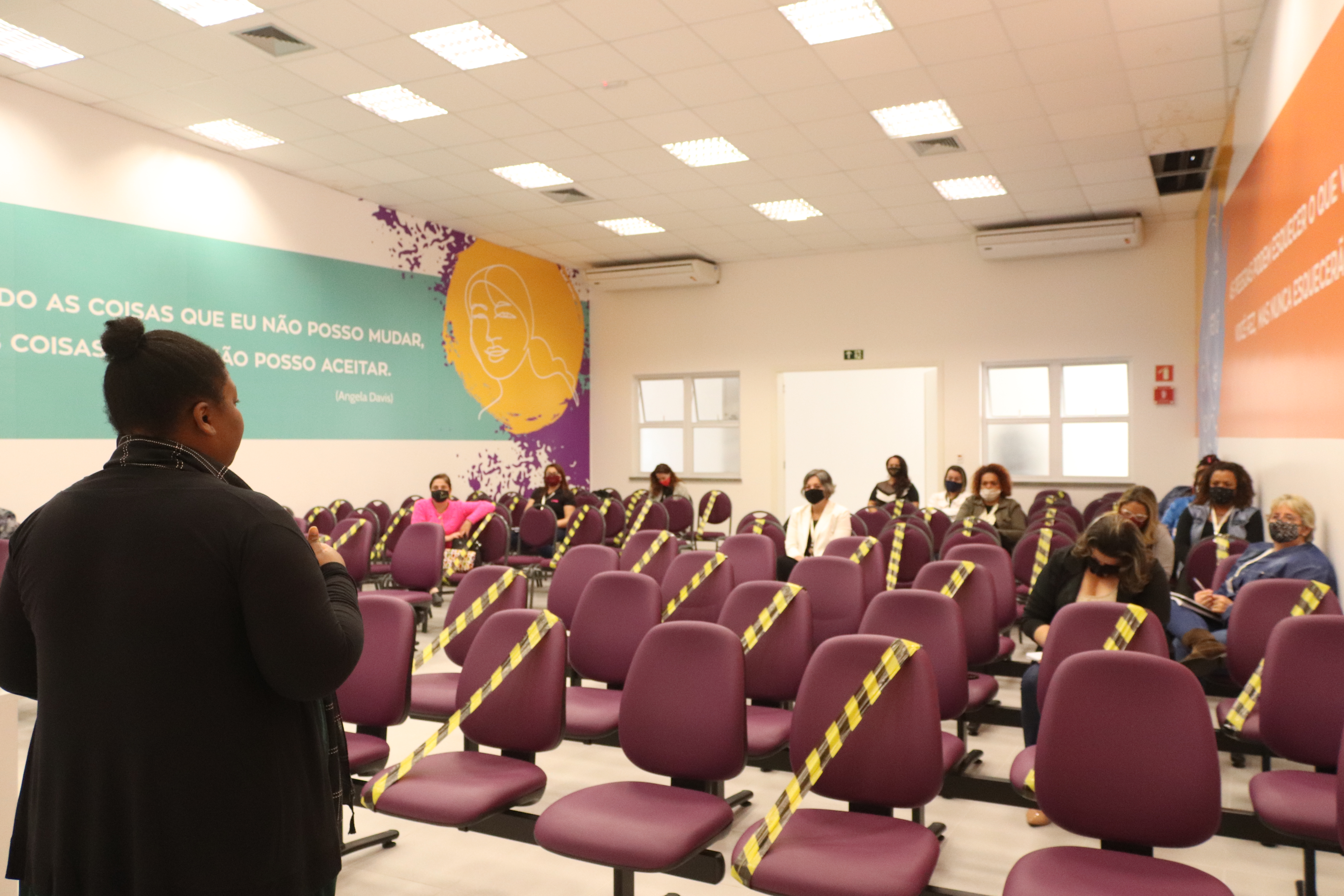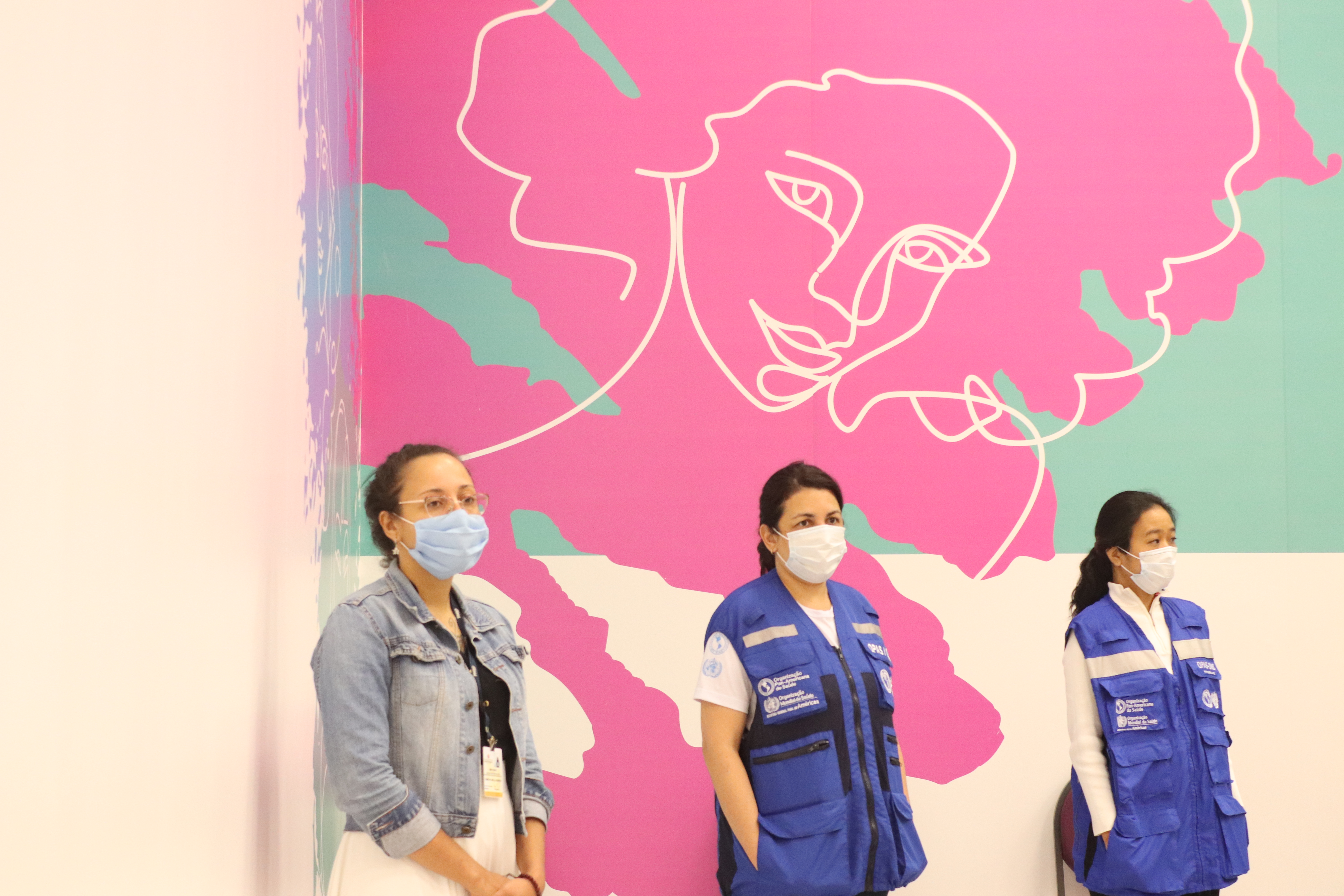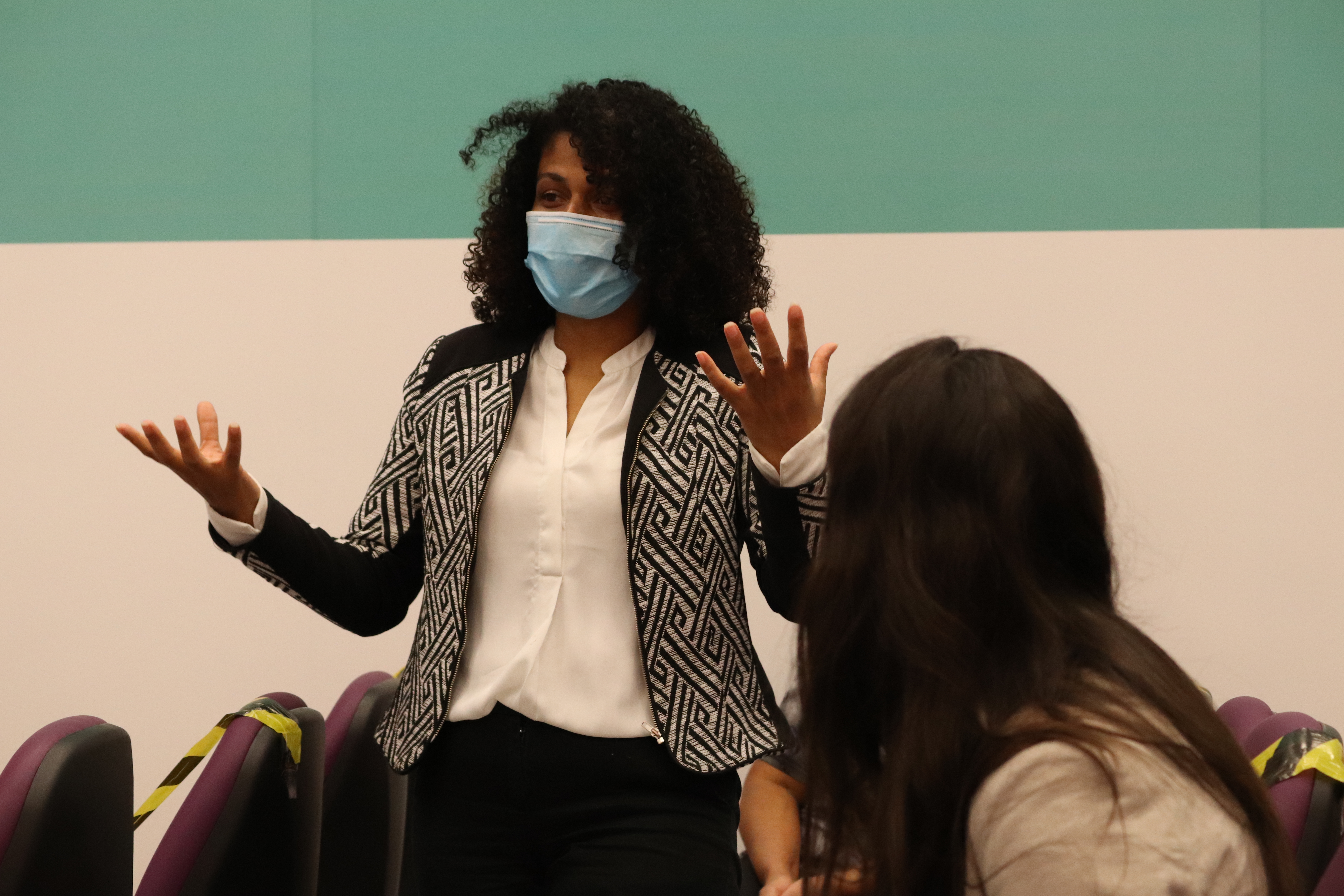In partnership with the International Relations Department and the Municipal Department of Human Rights and Citizenship (SMDHC), the Pan American Health Organization (PAHO/WHO) held a training session with municipal women workers who serve women victims of violence in the city of São Paulo. The training took place from July 20th to 23rd at the Casa da Mulher Brasileira and was attended by social workers, psychologists and the social-educational team of the women's shelter units. "Combating violence against women during the pandemic is a matter of urgency, and this training is part of a series of the City Hall actions to protect women who live in situations of violence. From now on, services for them can be provided in a more qualified and humanized manner," said the Mayor of São Paulo, Bruno Covas.
The objective of the training was to qualify the assistance to women in situations of violence in the context of the Covid-19 pandemic. "The training of PAHO / WHO with the SMDHC aims to improve services in the facilities of women’s care, so that this process can be done in a dignified and safe manner," said the Secretary of International Relations, Luiz Alvaro Salles Aguiar de Menezes. "This partnership strengthens the care of women in situations of violence by offering a cutting-edge knowledge of Covid-19 prevention and how to deal with women in situations of violence on this moment of pandemic. I believe that the training directly impacts on the women’s care," explained Marina Morais de Andrade, Coordinator of Multilateral International Affairs.
The course was lectured by Akemi Kamimura, National Human Rights Consultant of the PAHO/WHO Brazil Deputy Representative Office, and by the PAHO/WHO Brazil Emergency Preparedness, Surveillance and Response team, represented by Fabiana Sherine dos Santos. For the PAHO/WHO consultant, the training prepares the municipal workers to welcome victims of violence from the reception, with care guidance to prevent infection by the coronavirus both by female employees and women attended. "In this context of the pandemic, the service of care for women in situations of violence is essential and, therefore, it is important that the professionals who will provide this care are informed and updated," explained Akemi.
During the training, which took place in person, all health safety protocols were followed for the activity. The training addressed issues related to the gender perspective and confronting violence against women in the Covid-19 pandemic situation, psychological care and self-care measures, psychosocial skills of those working in the front line of the response to Covid-19, and the preparation of equipment during the reopening of services.
"The training was well welcomed and important for this moment of pandemic. Besides contributing with all the actions and care already adopted by SMDHC, the training helped in the preparation for this new moment that we are entering, with the gradual resumption of economic activities," said the Deputy Executive Secretary of Policies for Women, Mayara Mathias. For the Coordinator of the Brazilian Women's House (CMB) in São Paulo, Giannadrea Daidone, the training brought reliable guidance, through the World Health Organization (WHO), to ensure a quality service to women: "the experience was very valuable and met our concerns in serving with humanity and dignity, excelling in the care of the lives of both our users and the great team of the CMB," she said.
Care
During quarantine, women became more vulnerable to violence. Data from the Brazilian Public Security Forum indicated that cases of feminicide have increased by 22% throughout the country. In the city of São Paulo, cases of violence against women grew 30% during the months of March and April 2020, according to the Gender Nucleus and the Center for Criminal Operational Support (CAOCrim) of the São Paulo Public Ministry (MPSP). "Precisely at this moment, when we know that the rates of violence against women are increasing, it is essential to prepare professionals for a humanized service. The training seeks to strengthen this public policy of the City Hall to deal with this new context," concluded the Coordinator Marina Morais.
For the Executive Secretary, the training was important to bring more security to women who seek services: "the woman is the one who takes care of everything and is the head of families in many homes here in São Paulo. We believe that, for this reason, women also need to take care of themselves", concluded Mayara Mathias.





